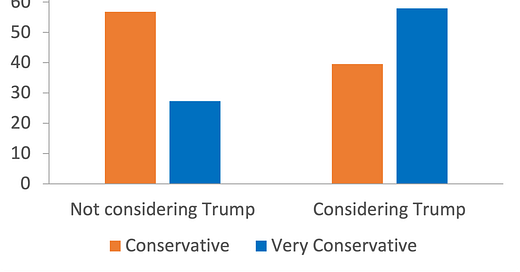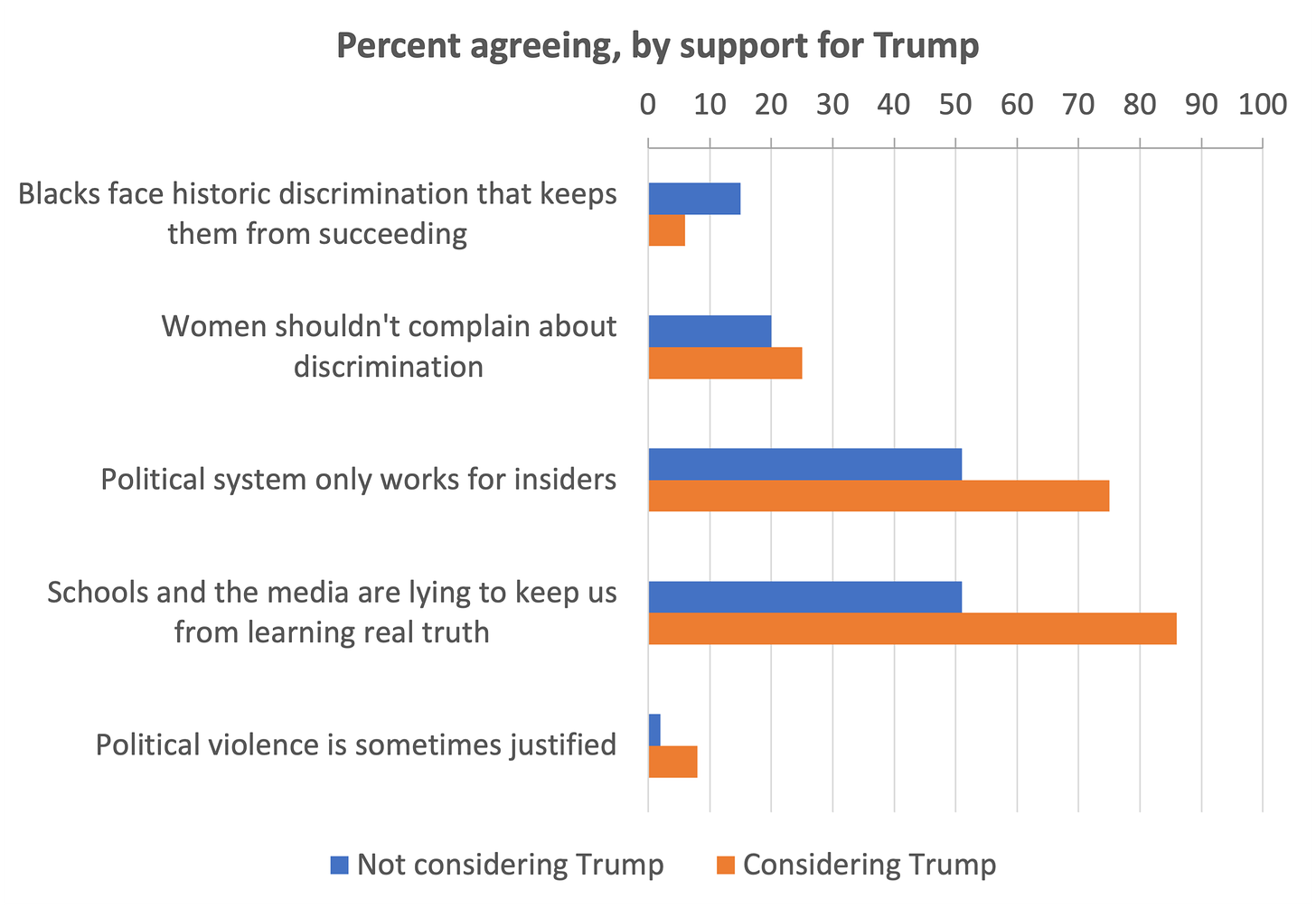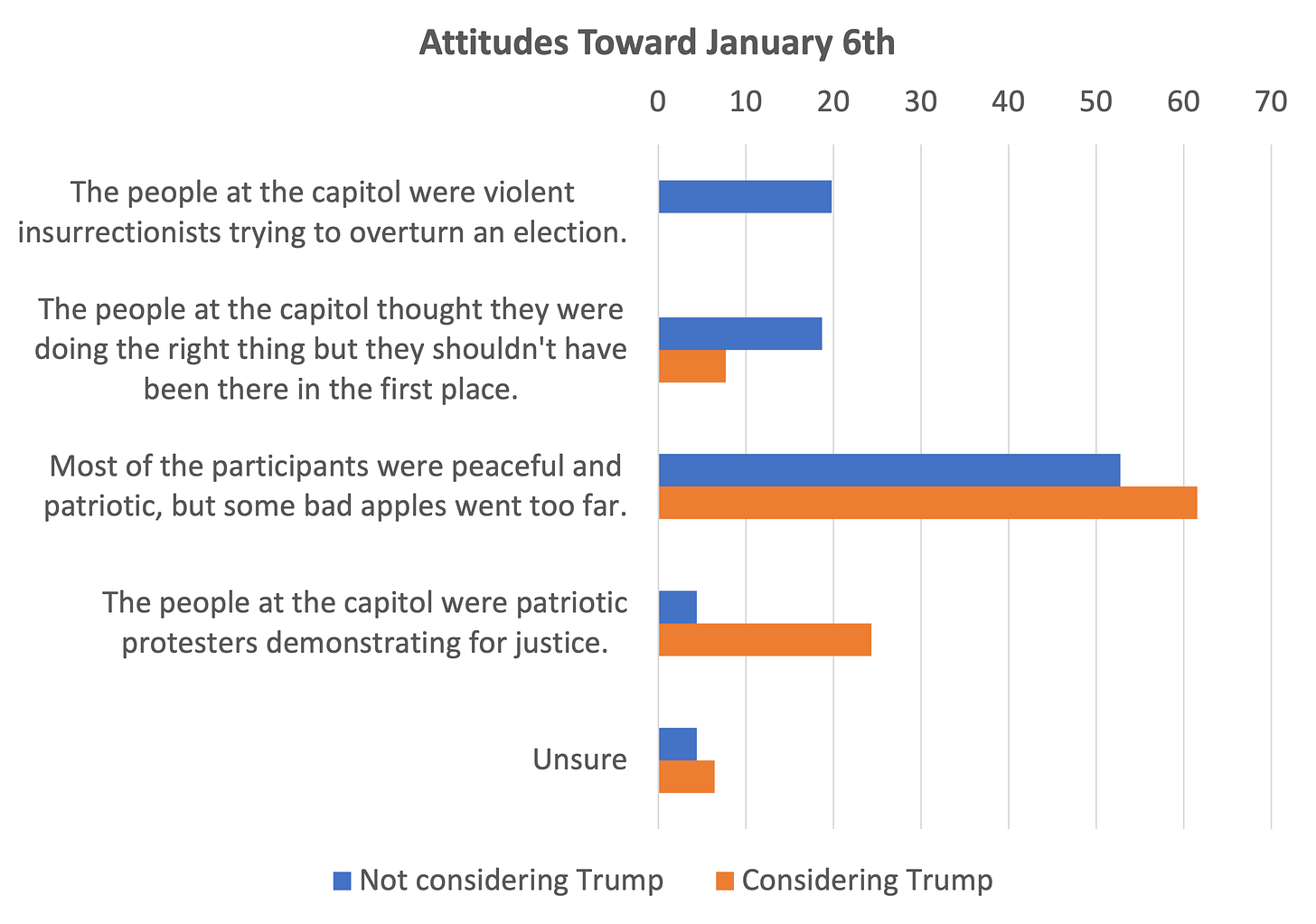What distinguishes Trump supporters from other Republicans
A dig into a recent county chairs survey
My recent piece in Politico reported the results of a survey of county Republican party chairs I conducted in February. The main finding was that only about 43% of the 187 chairs who answered the survey said they were considering Donald Trump as their 2024 presidential nominee, while 73% were considering Ron DeSantis. But digging into the data gives us a chance to see some of the splits within the party.
Here I’m comparing the 43% of the chairs who said they’re considering backing Trump to the remainder who didn’t. How do they differ?
In some senses, this is an ideological difference. 91% of all respondents identified themselves as “conservative” or “very conservative.” But the distinction between those two correlated pretty heavily with Trump support. Among those not considering Trump, “conservatives” outnumbered “very conservatives” by 57-27, while among those considering Trump, the “very conservatives” outnumbered the “conservatives” 58-40.
Of course, it’s not entirely clear what people are thinking when they distinguish between conservative and very conservative. But I asked a few issue questions to get a sense of it, borrowing some language from the American National Election Studies. I asked respondents if they agreed or disagreed with several statements:
“Generations of slavery and discrimination have created conditions that make it difficult for Blacks to work their way out of the lower class.”
“When women complain about discrimination, they often cause more problems than they solve.”
“Our political system only works for the insiders with money and power.”
“Much of what people hear in schools and the media are lies designed to keep people from learning the real truth about those in power.”
“In some circumstances, it is justified for people to use violence to pursue their political goals in this country.”
Note in the table below, there are some pretty modest differences between those interested in Trump and those not when it comes to questions about discrimination and political violence. But there are enormous differences when it comes to questions about conspiratorial thinking. Those considering supporting Trump are far more likely to believe that the political system only works for the wealthy and powerful, and that schools and the media are keeping us from learning the real truth.
Somewhat relatedly, there are significant differences in people’s attitudes toward the January 6th riots. I offered people four different interpretations of the events that day, which are listed below in order of increasing sympathy for the rioters. Those considering supporting Trump were far more sympathetic to the rioters.
One important corollary to all this, as Natalie Jackson noted on Twitter, is that Trump supporters may be less likely to answer an academic survey than non-Trump supporters, and thus my survey may be understating actual support for Trump among county chairs. This is possible! And difficult to discern at this point. I will definitely be working to solicit adequate responses from all sorts of Republicans in future survey waves, but it will be difficult to know if there’s been any systemic bias until much later.







